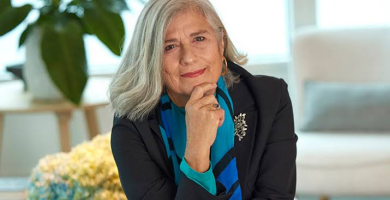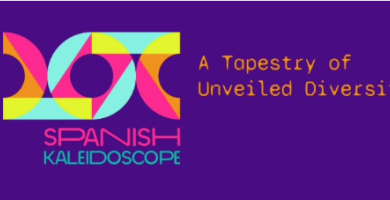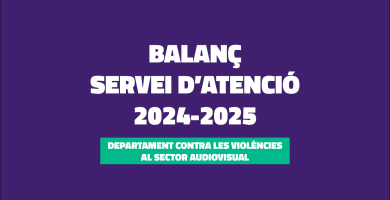
Joann Fletcher: "You could say that Pharaoh fills the void between the pyramids and Tutankhamen."
This month we interviewed the Egyptologist Joann Fletcher, whom you have probably seen in numerous documentaries about Ancient Egypt. The prestigious Egyptologist and also the University of York professor has been working on the Pharaoh project for two years, an ambitious television series together with the Catalan filmmaker and producer Marc Chica with his production company Limmat Films.

The series was recently presented in Barcelona in a conference at the Faculty of Geography and History of the University of Barcelona and at Conecta Fiction. With her, we talk about Egyptology, the vision that the audiovisual world gives of archaeologists and of course, of Pharaoh and her passion for the ancient pharaonic culture.
When did you decide that you wanted to be an Egyptologist?
At a very young age indeed. Before I could even read, I used to look at the pictures in my parents’ history books and was always strongly drawn to images of the ancient Egyptians. By the time I was 6 years old, the Tutankhamen exhibition first came to the UK and I became completely besotted with both Tutankhamen and ancient Egypt in general. Then when my mother told me there were people who studied all this as an actual job, and that I too could be an Egyptologist, I decided right then and there that was what I was going to do too. And 48 years later, I am still doing exactly that!
What is it about ancient Egypt that attracts you?
Everything! As a small child the bright colours of ancient Egyptian artwork was obviously very appealing, but since then, as I continued to learn more and more, I was also struck with the way the culture developed in response to Egypt’s unique environment – everything seemed to make sense and was somehow very logical.
How important do you think audio visuals and documentaries have for Egyptology?
I think they are hugely important and work on several levels. For those unable to afford to visit Egypt for themselves, they provide a way for everyone to enjoy and learn about the subject and take this further through visits to their local museums. Then of course they can also inspire people to visit Egypt, thereby benefitting the country’s economy which is so strongly focused on tourism, and generating the revenue necessary to maintain and conserve the ancient sites for future generations.
Do you think that the cinema has played well the role of archaeologists who study ancient Egypt?
Not entirely! Such characters are usually quite clichéd, most often elderly gentlemen from a privileged background who tend to border on the eccentric. And while film makers have finally woken up to the fact that Egyptologists can also be female, they tend to be very young and again are either rather eccentric or have to leap around like Lara Croft in somewhat minimal clothing! So, it’s fair to say I have never seen anyone on screen I myself could ever relate to.
The majority are always men. Is a vision of Egypt missing from the point of view of women? Not only in the cinema, but in Egyptology itself.
Well certainly female Egyptologists are quite rare on screen, but this doesn’t really reflect reality since Egyptology itself has always attracted significant numbers of female scholars, many of them true pioneers in the subject. In Egypt today there are some excellent female Egyptologists, while British Egyptology was virtually created by a woman, the remarkable Amelia Edwards who in 1882 founded the Egypt Exploration Society and in 1892 the UK’s first university chair in Egyptian archaeology, both of which are still going strong today. And as a woman who made her own living, Edwards was also active in the Suffrage movement campaigning for equal voting rights for women. So, on many levels, she has always been hugely inspiring to me and to many others.
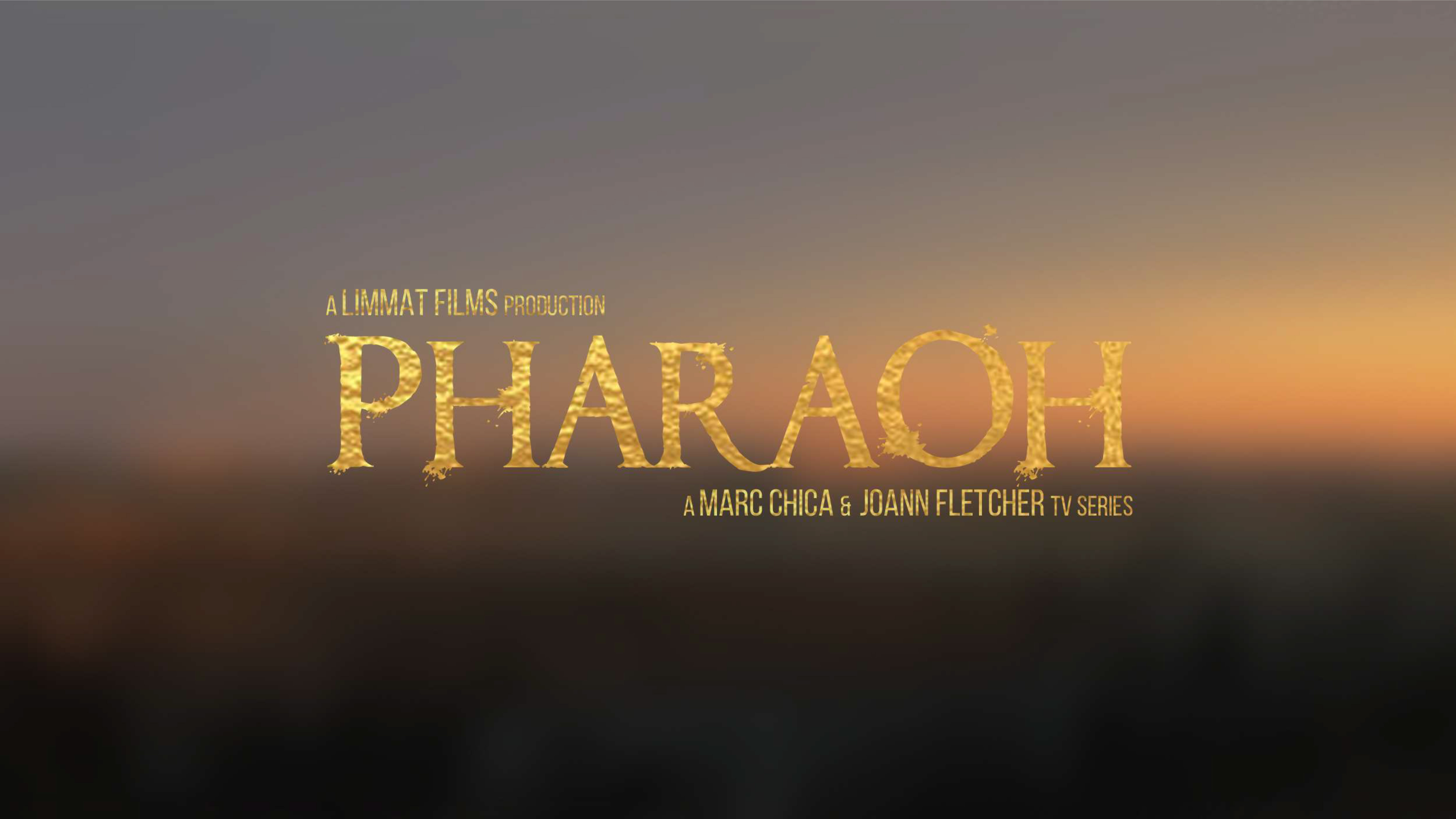
Now you have embarked on the Pharaoh series, a fictional project, an eight-season series powered by Limmat Films. How did you meet Marc Chica, director of the project, and how did your collaboration begin?
It was all very straightforward really. Like me, Marc has been passionate about ancient Egypt since he was a small child, and over the years had watched numerous Egyptology documentaries. In some of these he saw me talking about the same things he was interested in too, so when he had the idea of Pharaoh back in 2018 and wanted an Egyptologist to work with, he found my contact details and emailed me. And although I receive numerous emails from people I have never met asking all manner of questions and offering all kinds of potential projects, his email was so full of obvious love for the subject I was immediately intrigued and wanted to know more. So, we had a skype call – which lasted for 4 hours! At this point it was obvious we had plenty to talk about, so he came over to the UK and we immediately began to collaborate.
You have collaborated on numerous documentaries about ancient Egypt, but this is a completely different take on it. What attracted you to this project?
For two basic reasons. Although you describe Pharaoh as ‘a fictional project’ in the previous question, it is in fact deeply rooted in fact. It’s set over three thousand years ago in one of the most volatile periods in Egyptian history, and involves some extraordinary people a scriptwriter could never dream up, real people whose dramatic stories are tailor made for the screen. For we aren’t just talking about the usual line-up of heroic men and ‘decorative’ women, since our leading female characters are known to have wielded huge political power and taken an active part in battle. And while such characters are very little known outside the world of Egyptology, we have a huge amount of archaeological detail for so many of them – from their relationships to where they lived, what they wore, their likes and dislikes and so on. We even have the very people themselves since their bodies were preserved through mummification, allowing us to better understand how they had lived and also how they’d died. It’s all about adding layers of detail which have to be totally authentic, and that’s the second reason I was so attracted to this project – it allows me to work alongside Marc who is as committed to such details as I am, within a format which can really bring these ancient people to life. And while documentaries are certainly a great way to look at aspects of ancient Egypt, their brief format of a few hours at best doesn’t really allow for any expansion of either the detail or the broader concepts. So, within our series of 8 seasons of multiple episodes, the audience will truly be able to immerse themselves in the ‘real’ ancient Egypt, something which has never really been achieved before. And that really matters to both of us.
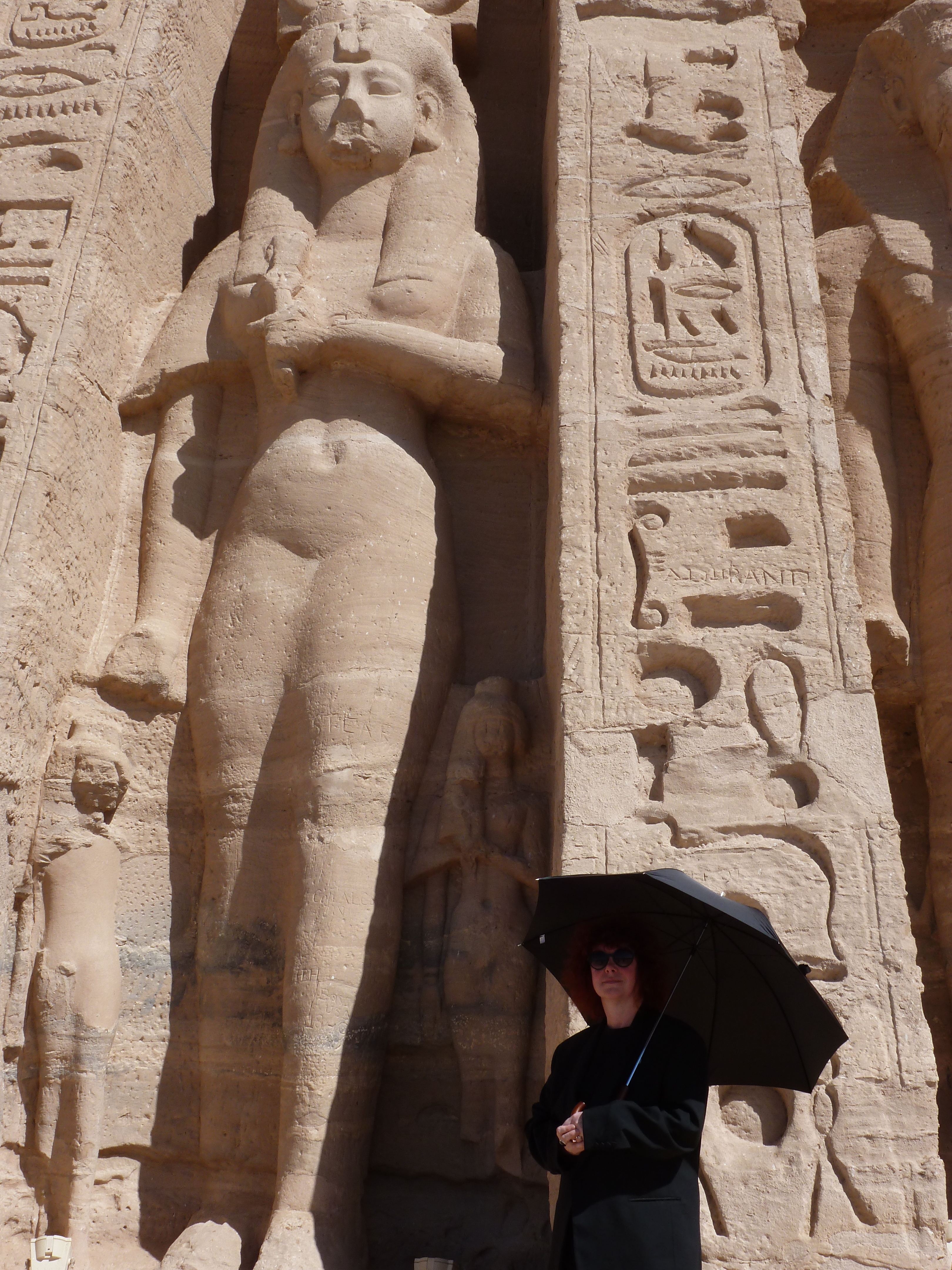
In Pharaoh, you have also been involved in the script. You want to break the mold and give a different vision of a world based on dualities. That is sometimes difficult to understand in our current society. How do you approach the design of the series?
Yes, after a very short time discussing the project (and much to my surprise), Limmat made me co-creator with equal input as Marc. It’s certainly a new world for me, but that’s why we work so well together, Marc’s experience as a filmmaker combining with my input as an Egyptologist, and both of us sharing the same enormous passion for these ancient people and their impact on Egypt’s history. It’s a fascinating process of blending together the information published in books and academic papers with the less well-known evidence found on archaeological excavations, in museum storage and even by analysing ancient samples in the laboratory. As I said, it’s all about getting the details as accurate as possible while exploring the bigger picture, all of which come together to create an authentic ancient world. And while it might be a very different world to ours, it will be one the audience can really believe, and thereby understand.
There is little information about this period, it is less known to the general public, and perhaps it does not have the grandeur or showiness of the age of the pyramids, for example. What do you think it can attract from that time and what advantages or disadvantages do you see in that there is little information about this period when making the series?
It is certainly a less well-known period among the general public, but this isn’t because there is little information, quite the opposite in fact. We have a huge amount of archaeological evidence for many of our characters, far more than exists for some of the biggest names in Egyptian history – for example everyone knows about the great Cleopatra, the subject of numerous documentaries and films, but there are hardly any contemporary images of her, and neither her tomb nor her body have ever been found. But for our great female characters in ‘Pharaoh’, we have their portraits, their personal belongings and even the women themselves since their bodies are housed in Cairo Museum. As for the grandeur and showiness of the pyramids, they are a key part of our series too. For even though they were built almost a thousand years earlier than our time period, they remained a powerful symbol of Egypt’s former greatness to which our characters aspire as they rebuild their country, transforming it into a truly ‘golden age’ culminating in Tutankhamen himself. In fact, you could say that Pharaoh fills the void between the pyramids and Tutankhamen.
Most of the characters in the series are real characters, but some have been created for it. How was that process of creating that character and why create it?
Yes, virtually every single character is a historical figure, with only very few exceptions. Yet even these ‘fictional’ characters are based on real people, albeit in some cases with a slight name change to prevent confusion since several characters share the same name during our time period. In one or two cases we also had to give names to characters who we know existed, even if their names are lost. This is something very common within Egyptian history where so much is still unknown. Even in the case of Egypt’s most famous pharaoh Tutankhamen, he obviously must have had a mother but we don’t know her name, nor his date of birth or date of death, even though we have his actual body, the contents of his wine cellar and even his underwear! It’s this same mix of minute detail alongside areas of missing evidence which typifies any study of Egypt’s ancient history, so our task in Pharaoh is to take everything that is known and, where necessary, extend it with what is most likely, based on our knowledge of ancient Egypt.
You participated with the Pharaoh project in Conecta Fiction, how was the experience? Have you participated in an audiovisual pitching experience before?
Well, Conecta Fiction was a completely new experience for me, and since I’d never done anything like it before it was certainly nerve-wracking, especially with the Covid restrictions. But it was such a well-organised event I really enjoyed it. It was a real pleasure to be able to present something we felt so strongly about to a new and very different kind of audience in such a friendly environment. I hope we get the chance to do it again!
Pharaoh is an ambitious project, a series of 8 seasons, in what phase of it are you now?
We are currently in the later stages of research and development. Having spent two and a half years working together to achieve the sufficient level of detail to create the maximum impact, we finally presented Pharaoh to the world at this year’s Conecta Fiction, and the reception has been fantastic! Although we can’t give any details at the moment, we’re currently negotiating with several producers and broadcasters and hope to announce some good news soon. But in the meantime, we continue with the research and development, which in many ways is the ultimate conclusion of a shared passion for ancient Egypt which for both of us has been lifelong.





